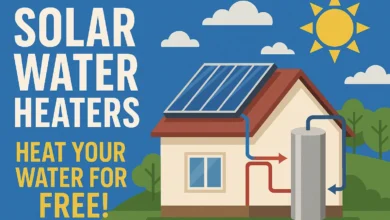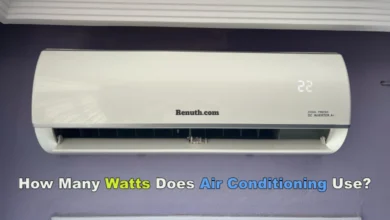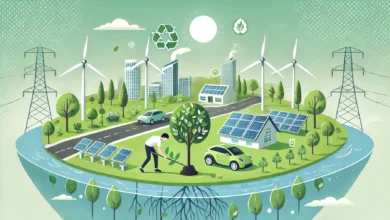Consortium for Energy Efficiency | CEE 2025

Energy efficiency plays a critical role in reducing energy consumption, lowering costs, and promoting sustainable energy practices. One of the key organizations driving energy efficiency in North America is the Consortium for Energy Efficiency (CEE). This article explores the role of CEE, its tier ratings, and various energy efficiency programs that shape the industry.
Contents
- 1 What is an Energy Consortium?
- 2 What is the Consortium for Energy Efficiency (CEE)?
- 3 What is the Highest CEE Tier?
- 4 What is a CEE Tier 1 Rating?
- 5 What is the US Energy Efficiency Program?
- 6 What is an Efficiency Program?
- 7 What is the New Clean Energy Program?
- 8 Enhancing the Article with Key Data and Solutions
- 9 The Impact of the Consortium for Energy Efficiency
What is an Energy Consortium?
An energy consortium is a group of organizations, businesses, or government agencies that collaborate to develop and implement energy efficiency programs, policies, and standards. The Consortium for Energy Efficiency (CEE) is a prime example, working with utilities, regulatory bodies, and manufacturers to create energy-saving initiatives that benefit consumers and businesses.
What is the Consortium for Energy Efficiency (CEE)?
The CEE is a non-profit organization dedicated to improving energy efficiency programs across the U.S. and Canada. It collaborates with utility companies, energy regulators, and manufacturers to develop CEE criteria that set industry standards for energy-efficient products. These standards influence programs like ENERGY STAR, which helps consumers identify high-efficiency appliances and systems.
What is the Highest CEE Tier?
CEE uses a tiered rating system to categorize energy-efficient products. The highest CEE tier varies by product type, but generally, CEE Tier 3 represents the highest efficiency rating.
- CEE Tier 1: Meets basic energy efficiency standards, offering moderate energy savings.
- CEE Tier 2: Provides higher efficiency than Tier 1, meeting stricter energy performance requirements.
- CEE Tier 3: The most energy-efficient category, offering significant energy and cost savings.
Products in CEE Tier 3 often qualify for CEE tax credit incentives, helping consumers and businesses offset the cost of energy-efficient upgrades.
What is a CEE Tier 1 Rating?

A CEE Tier 1 rating signifies that a product meets the minimum CEE criteria for energy efficiency. While not the highest level, Tier 1 products still provide notable energy savings compared to standard models. Many Center for Energy Efficiency programs use Tier 1 as a baseline requirement for rebate and incentive programs.
What is the US Energy Efficiency Program?
The U.S. energy efficiency program consists of multiple initiatives designed to promote energy conservation at residential, commercial, and industrial levels. Some key programs include:
- ENERGY STAR: A federal program that identifies energy-efficient appliances and equipment.
- CEE Efficiency Programs: State and utility-driven programs encouraging efficient energy use.
- AHRI Climate Zones: Guidelines for HVAC efficiency based on regional climate conditions.
- CEC Directory of Certified Water Heaters: A database listing water heaters that meet California’s strict efficiency standards.
These programs help consumers make informed decisions while reducing energy consumption and costs.
What is an Efficiency Program?
An efficiency program refers to any initiative aimed at reducing energy waste and improving overall energy performance. Efficiency programs often include:
- Rebates and tax credits for purchasing energy-efficient appliances.
- Building retrofits to improve insulation and HVAC efficiency.
- Commercial energy audits to help businesses optimize their energy usage.
Many of these programs are supported by the Energy Consortium, including CEE and utility-led initiatives.
What is the New Clean Energy Program?
The new clean energy program refers to evolving policies aimed at promoting renewable energy sources and reducing carbon emissions. Recent initiatives focus on:
- Expanding solar and wind energy adoption
- Electrification of transportation (EV incentives)
- Improving energy efficiency in homes and businesses
The Center for Energy Efficiency and organizations like CEE play a crucial role in shaping these programs by setting efficiency benchmarks and promoting sustainable solutions.
Enhancing the Article with Key Data and Solutions

1. Statistical Insights on Energy Efficiency
- CEE Tier 3 products save up to 30% more energy than standard models, significantly reducing annual energy costs.
- The ENERGY STAR program has helped American consumers save over $500 billion in energy costs since its launch.
- The U.S. energy efficiency market is projected to grow by 7.5% annually, showing increasing consumer adoption.
2. Key Energy Efficiency Programs and Incentives
- California, New York, and Texas offer some of the most extensive CEE tax credit programs and rebates for energy-efficient appliances.
- Homeowners can receive up to $2,000 in federal tax incentives for upgrading to CEE-approved HVAC systems and appliances.
3. Practical Energy-Saving Tips for Consumers
- Upgrade to CEE Tier-rated appliances to lower energy costs.
- Use smart thermostats to optimize heating and cooling based on daily usage patterns.
- Consider solar panels and battery storage for long-term sustainability and resilience.
4. CEE Certification and Where to Buy
- Amazon, Home Depot, and Lowe’s provide extensive catalogs of CEE-certified products.
- The CEC Directory of Certified Water Heaters helps consumers find highly efficient models.
5. Future of Clean Energy Programs
- Upcoming U.S. federal energy efficiency incentives aim to expand smart grid technology adoption.
- Corporate sustainability programs are integrating CEE guidelines into their green initiatives.
The Impact of the Consortium for Energy Efficiency
The Consortium for Energy Efficiency (CEE) plays a crucial role in shaping the future of energy efficiency programs in the U.S. Through its tiered rating system, collaboration with ENERGY STAR, and promotion of clean energy initiatives, CEE helps consumers and businesses save energy while reducing costs.
By understanding CEE criteria, leveraging CEE tax credits, and staying informed about energy efficiency programs, individuals can make smarter choices that contribute to a more sustainable future.



